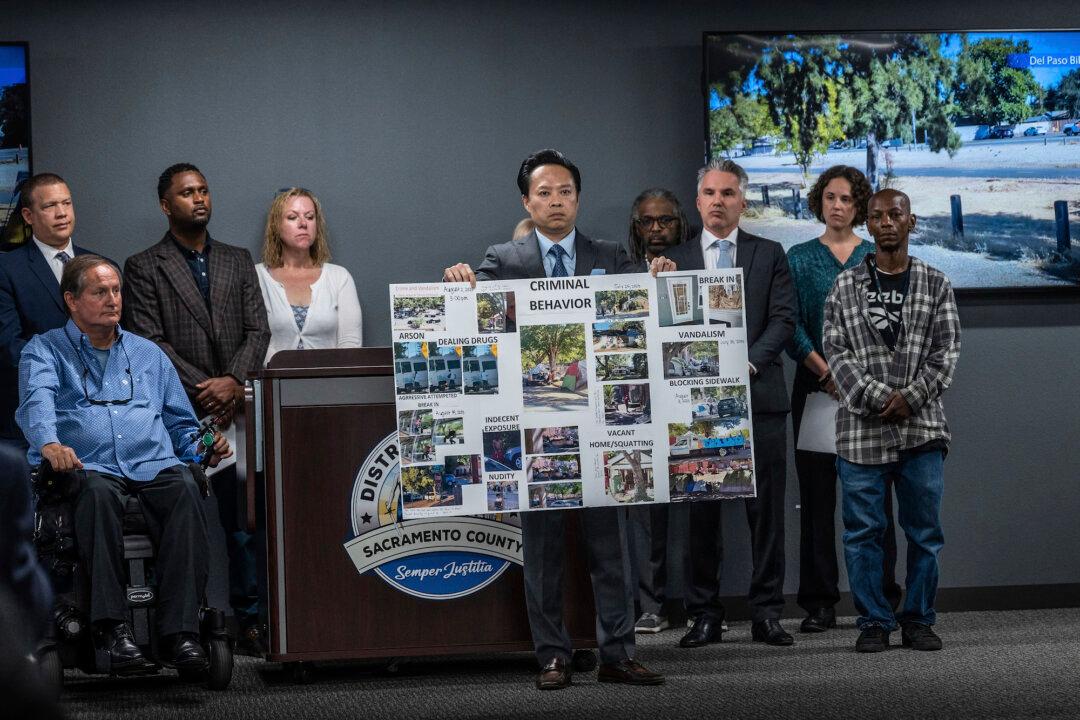With homeless encampments encroaching on sidewalks throughout the city, Sacramento County District Attorney Thien Ho announced a series of lawsuits filed against the City of Sacramento, California, for failing to uphold civil codes and enforce the law.
“We are simply holding the city accountable to the same law they enforce on us,” Mr. Ho said during a press conference on Sept. 19. “We are giving a voice to those that feel their cries for help have fallen on deaf ears.”





